- Lamar State College - Port Arthur is an open-access, comprehensive public two-year college offering quality instruction leading to associate degrees and a variety of certificates. The college, a member of The Texas State University System, has provided affordable, quality educational opportunities to residents of the Southeast Texas area since 1909.
School Highlights
Lamar State College-Port Arthur serves 3,328 students (26% of students are full-time).
The college's student:teacher ratio of 19:1 is lower than the state community college average of 23:1.
Minority enrollment is 76% of the student body (majority Hispanic), which is more than the state average of 74%.
Quick Stats (2025)
- Enrollment: 3,328 students
- In-state tuition: $5,295
- Out-state tuition: $16,155
- Student:teacher ratio: 19:1
- Minority enrollment: 76%
- Source: Integrated Postsecondary Education Data System (IPEDS)
Top Rankings
Lamar State College-Port Arthur ranks among the top 20% of public schools in Texas for:
Category
Attribute
Diversity
School Overview
The teacher population of 176 teachers has stayed relatively flat over five years.
Lamar State College-Port Arthur
(TX) Community College Avg.
Carnegie Classification
Associate's Colleges: High Career & Technical-High Traditional
Baccalaureate/Associate's Colleges: Associate's Dominant
Institution Level
At least 2 but less than 4 years
At least 2 but less than 4 years
Institution Control
Public
Private, for profit
Total Faculty
176 staff
262 staff
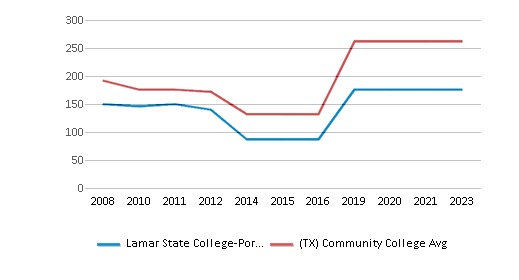
School Calendar
Student Body
The student population of Lamar State College-Port Arthur has grown by 31% over five years.
The student:teacher ratio of 19:1 has increased from 14:1 over five years.
The Lamar State College-Port Arthur diversity score of 0.70 is equal to the state average of 0.70. The school's diversity has stayed relatively flat over five years.
Total Enrollment
3,328 students
1,396 students
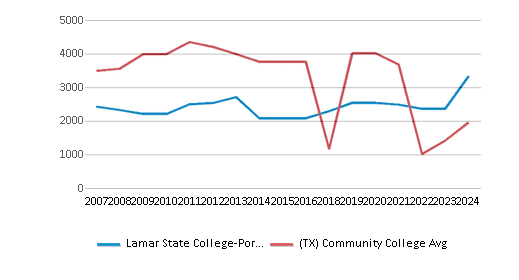
Student : Teacher Ratio
19:1
23:1
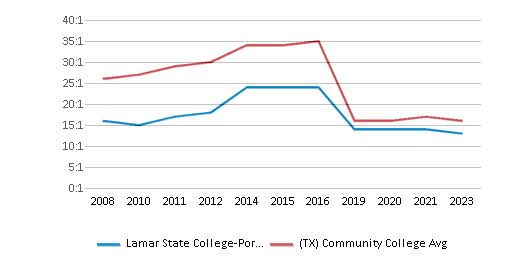
# Full-Time Students
850 students
890 students
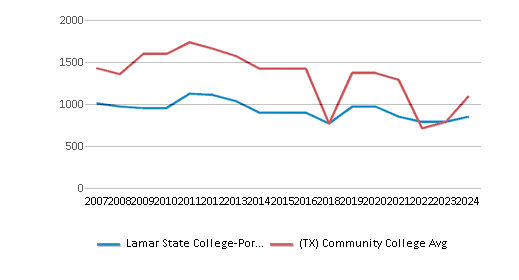
# Part-Time Students
2,478 students
4,022 students
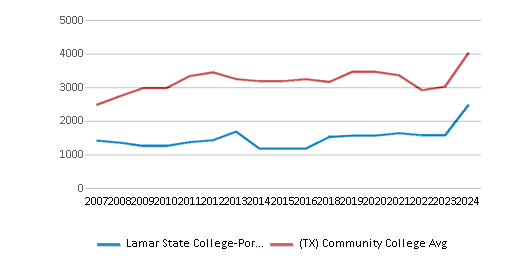
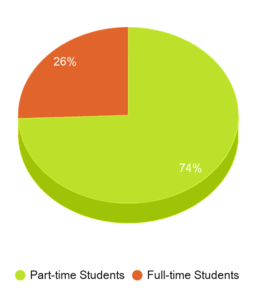
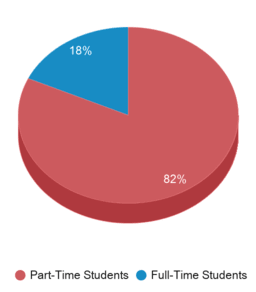
# Enrollment Undergraduate
332 students
403 students
# Full-Time Undergraduate Students
850 students
890 students
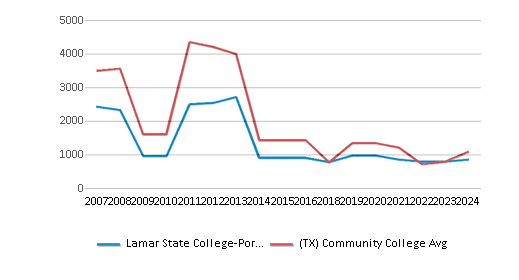
# Full-Time Graduate Students
n/a
40 students
# Part-Time Undergraduate Students
2,478 students
4,022 students
# Part-Time Graduate Students
n/a
47 students
Total Dormitory Capacity
n/a
252 students
% American Indian/Alaskan
n/a
n/a
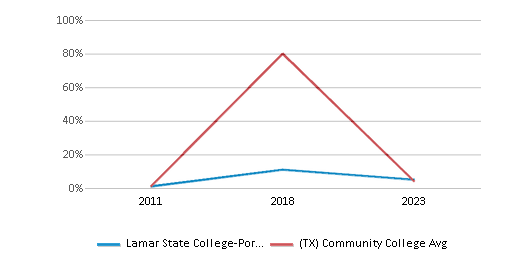
% Asian
4%
6%
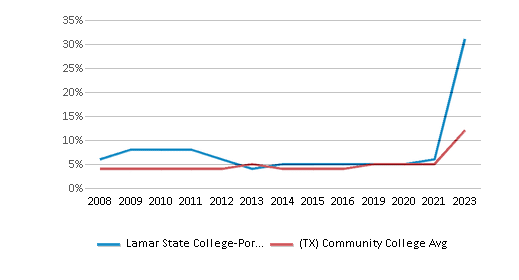
% Hispanic
39%
46%
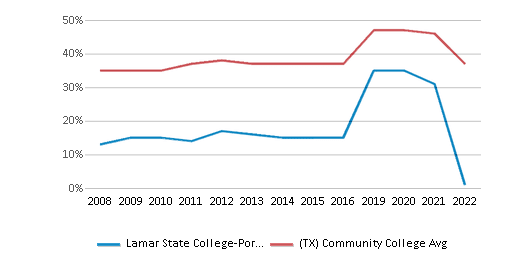
% Black
29%
14%
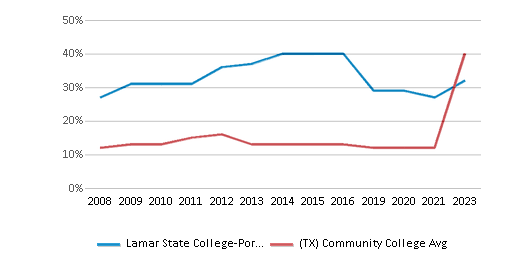
% White
24%
26%
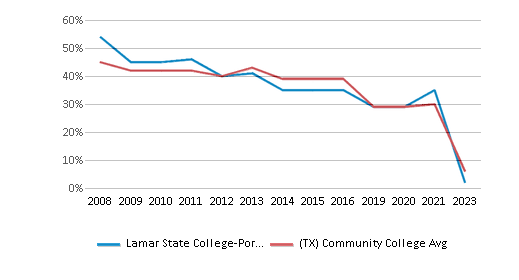
% Hawaiian
1%
n/a
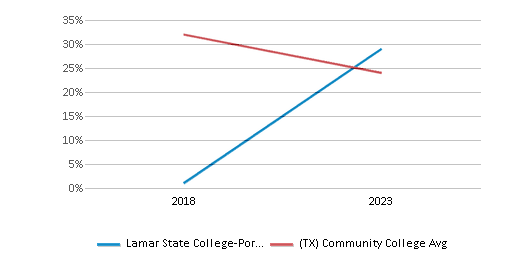
% Two or more races
1%
3%
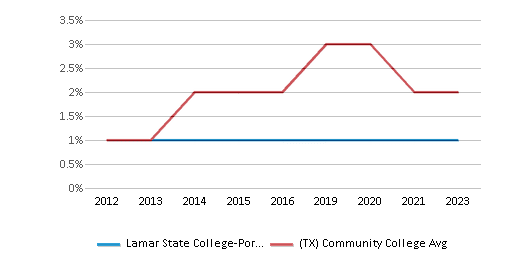
% Non Resident races
n/a
2%
% Unknown races
1%
3%
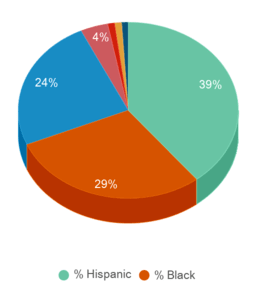
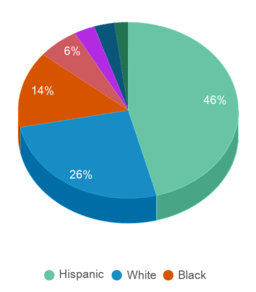
Diversity Score
0.70
0.70
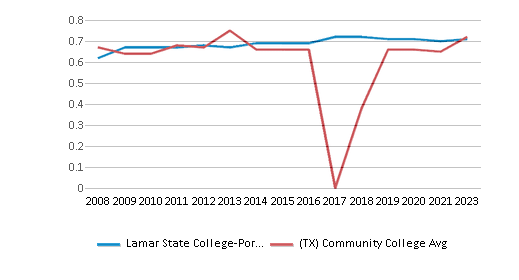
College Completion Rate (Students who graduate in less than 4 years)
0.2654%
0.5469%
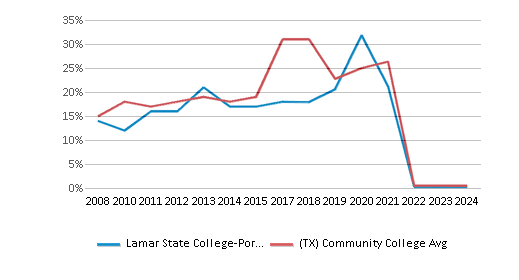
College Completion Rate (Students who graduate in 4 years or more than 4 years)
n/a
0.3357%
Average Graduate Earnings (10 Years)
$33,200
$34,600
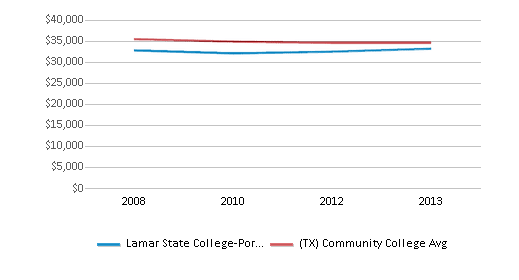
Tuition and Acceptance Rate
The public in-state tuition of $5,295 is more than the state average of $3,316. The in-state tuition has grown by 22% over four years.
The public out-state tuition of $16,155 is more than the state average of $5,750. The out-state tuition has stayed relatively flat over four years.
In-State Tuition Fees
$5,295
$3,316
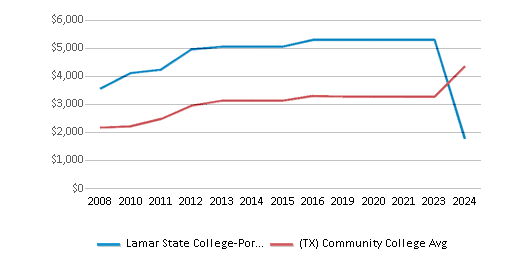
Out-State Tuition Fees
$16,155
$5,750
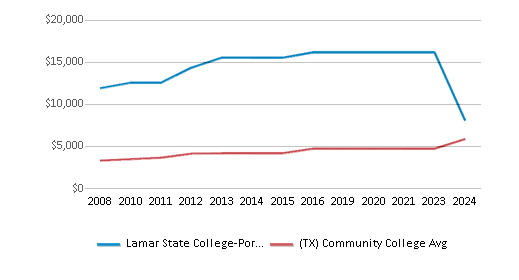
% Students Receiving Some Financial Aid
86%
84%
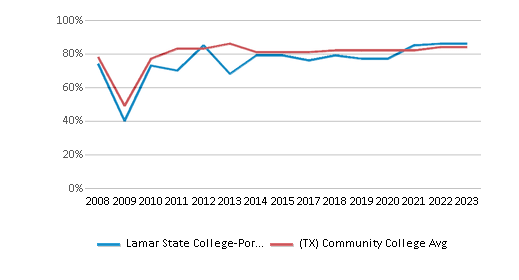
Median Debt for Graduates
$14,230
$10,765
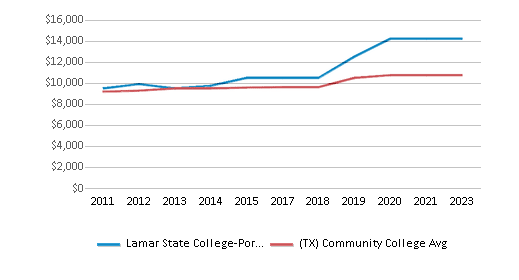
Median Debt for Dropouts
$5,500
$5,500
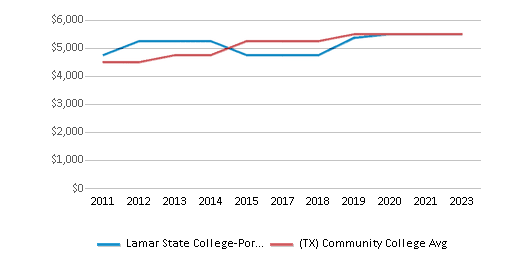
Acceptance Rate
n/a
81%
Source: 2024 (or latest year available) Integrated Postsecondary Education Data System (IPEDS)
School Notes
- Lamar State College-Port Arthur, a two-year, state-supported institution, is a member of The Texas State University System. Located in Port Arthur, an industrial and cultural center of Southeast Texas, the college offers freshman- and sophomore-level work in numerous academic and technical/vocational fields. The campus sits between the 1,000 and 1,800 blocks of Procter Street and Lakeshore Drive. <--new bullet point-->Founded as Port Arthur Business College in 1909, Lamar University - Port Arthur became a part of the Lamar University System in 1975. On September 1, 1995, Lamar - Port Arthur became part of The Texas State University System. Legislation signed into law in June 1999 changed the name to Lamar State College - Port Arthur. The Lamar State College-Port Arthur campus contains 22 buildings situated on approximately 40 acres. Most of these facilities were donated for the creation of the institution. The following is a listing of the institutions and organizations whose facilities contributed to Lamar State College-Port Arthur: Port Arthur College, the City of Port Arthur, the Port Arthur College Foundation, Southern Union Gas, the First United Methodist Church of Port Arthur and Daughters of the American Revolution. Lamar State College-Port Arthur offers general academic courses leading to Associate of Arts and Associate of Science degrees. Courses for transfer to four-year institutions are offered in accounting, economics, anthropology, art, government, health, home economics, physical education, physics, history, speech, computer science, mathematics, psychology, biology, chemistry, geography, geology, sociology, criminal justice, music, drama, English and Spanish. Lamar State College-Port Arthur is accredited by the Commission on Colleges of the Southern Association of Colleges and Schools to award associate degrees. It is approved by the Texas Education Agency for the training of veterans under all classifications.
Frequently Asked Questions
How much does Lamar State College-Port Arthur cost?
Lamar State College-Port Arthur's tuition is approximately $5,295 for In-State students and $16,155 for Out-State students.
What schools are Lamar State College-Port Arthur often compared to?
Lamar State College-Port Arthuris often viewed alongside schools like Lamar State College-Orange, Tyler Junior College by visitors of our site.
What is Lamar State College-Port Arthur's ranking?
Lamar State College-Port Arthur ranks among the top 20% of community college in Texas for: Diversity in US community colleges.
Recent Articles

Obtaining Your Bachelor's Degree at a Community College
Explore the evolving landscape of community colleges offering bachelor's degrees, addressing affordability, accessibility, and workforce needs.

A to Z of Community College Certificates and Courses
From business and healthcare to technology and skilled trades, the article showcases the breadth of options available to students seeking to enhance their knowledge, develop new skills, or pursue career advancement.

What is a Community College?
This comprehensive guide explains what a community college is, its history, and its role in higher education. It covers the types of programs offered, differences from four-year colleges, benefits of attending, and important considerations for prospective students, providing valuable insights for those exploring educational options.










